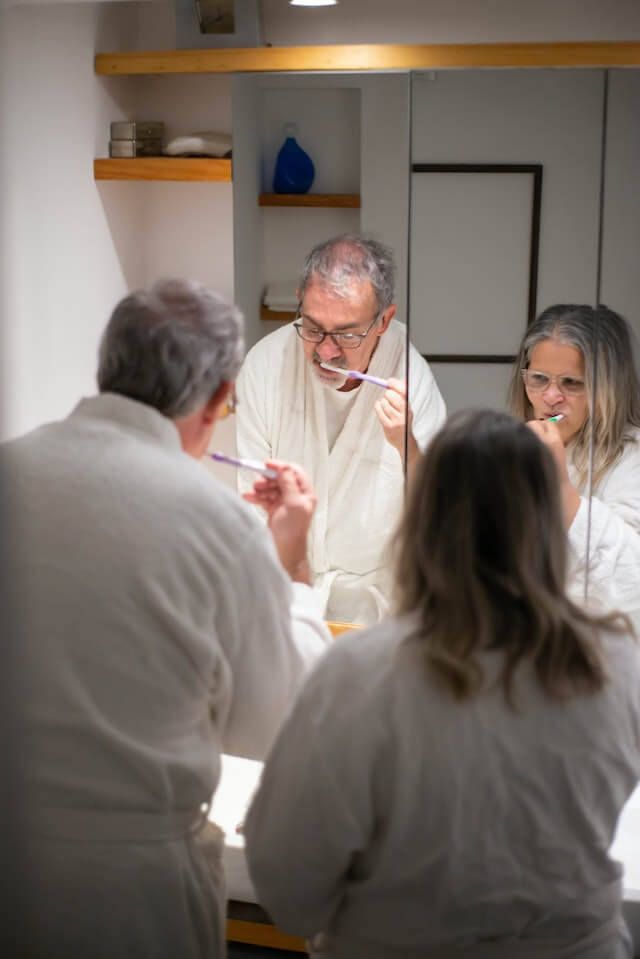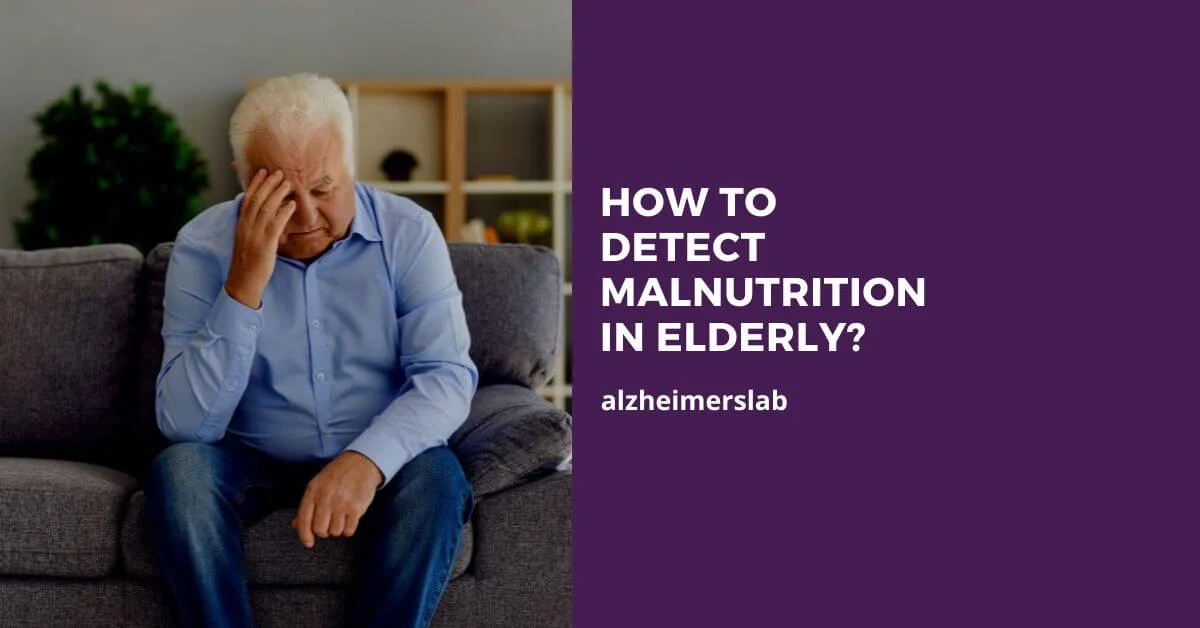How to Detect Malnutrition in Elderly?
Caregivers or family members of the elderly need to recognize the signs of malnutrition. A senior person can exhibit certain symptoms that point to undernutrition or nutrient deficiency.
Caregivers should keep an eye on the senior person’s (the care recipient) general habits, and eating behavior throughout the day.
This is what you should look for:
1. Signs of sadness, or depression
Depression can lead to a lower appetite in seniors. Notice if they have reduced social interactions (or stopped talking altogether) with others in the family.
Another thing I have noticed is that sad people tend to spend time alone in their rooms. In such a scenario, consult the nearest Psychotherapist. Talk therapy might help relieve depression.
2. Look for signs of forgetfulness
Studies suggest that a person in the early stages of Dementia can suffer from a lack of appetite. They may be experiencing problems with chewing or swallowing food.
Further, Dementia can also make a person feel tired or jaded. The person may be struggling to focus on the task of “eating food”. Not eating for prolonged periods can lead to malnutrition.
3. Check for tooth decay

Are they experiencing sudden or spontaneous tooth pain? Or maybe they suffer from toothache after eating or drinking something cold or hot?
It is common for seniors to keep their physical problems to themselves. You can perform a quick dental checkup by asking questions, or examining their teeth with a medical pen torch.
4. It may be the medication that might be making them less hungry
Certain medications can cause a temporary lack of appetite. This article by Cleveland Clinic lists the most common appetite suppressant medicines. Make sure to go through them, if you find that the care recipient is having any of these appetite suppressants, kindly ask for a medication review from the doctor who made the prescription.
5. Check for enlarged thyroid gland
An enlarged thyroid gland can interfere with the process of swallowing food. This condition is also known as dysphagia, and it is very common in older adults.
Due to difficulty swallowing, the elderly person must be trying to avoid eating solid foods. Try serving them pureed foods such as soup, vegetable smoothies, or porridge.
Furthermore, I suggest you perform a self-thyroid exam at home. This video by Cleveland Clinic can help. Later, you can consult an Endocrinologist.
Summary
Several more factors can cause a lack of appetite in the elderly, which can further lead to malnutrition. Caregivers or family members of the care recipient need to identify the signs of malnutrition by observing their habits, asking questions, and taking notes. You can also add extra nutrition to their food to balance the deficiencies.

